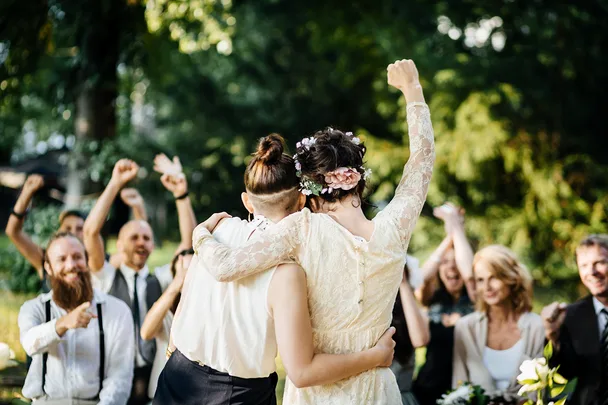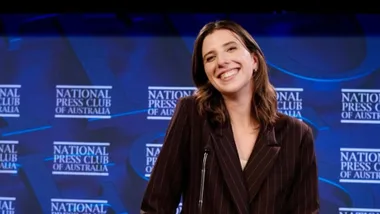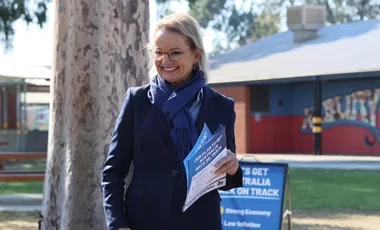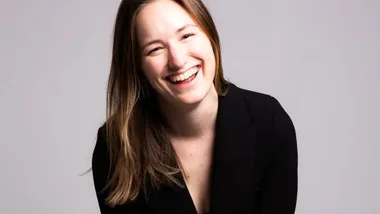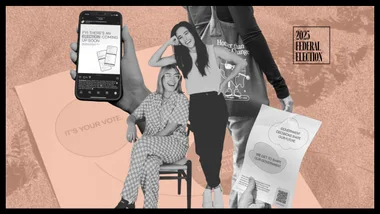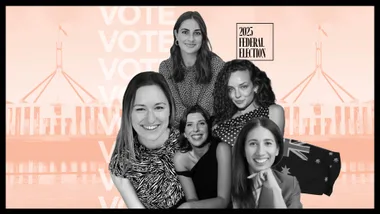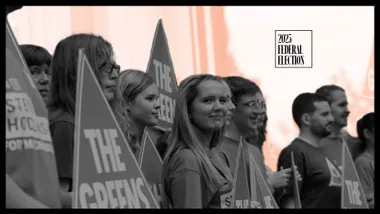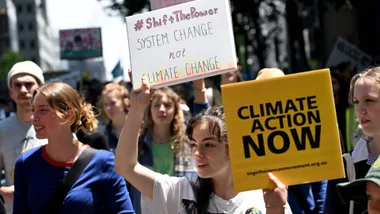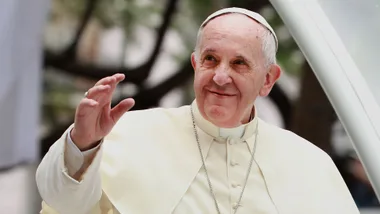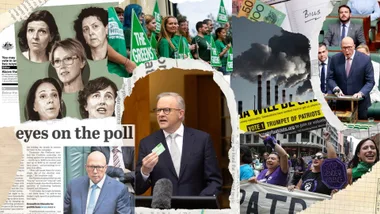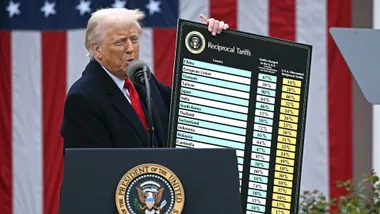On Tuesday, the government mailed a letter to 16 million Australians.
Inside the envelope is a large open space with the question: “Should the law be changed to allow same-sex couples to marry?”
You have until 25th September to let the Australian Bureau of Statistics know your answer.
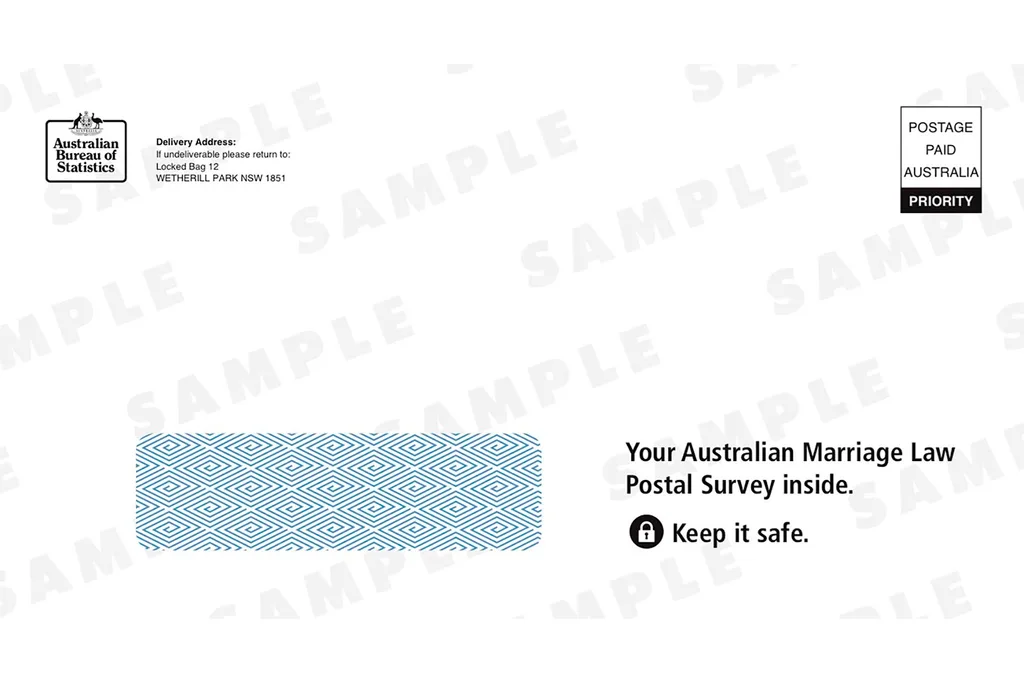
At first, the question seems benign. A simple ‘yes’ or ‘no’ that states your views on whether you think men should be able to marry men and women should be able to marry women. But here’s why it’s hurtful to LGBT Australians like myself. And even more concerningly, here’s why it may push the ‘no’ vote to victory.
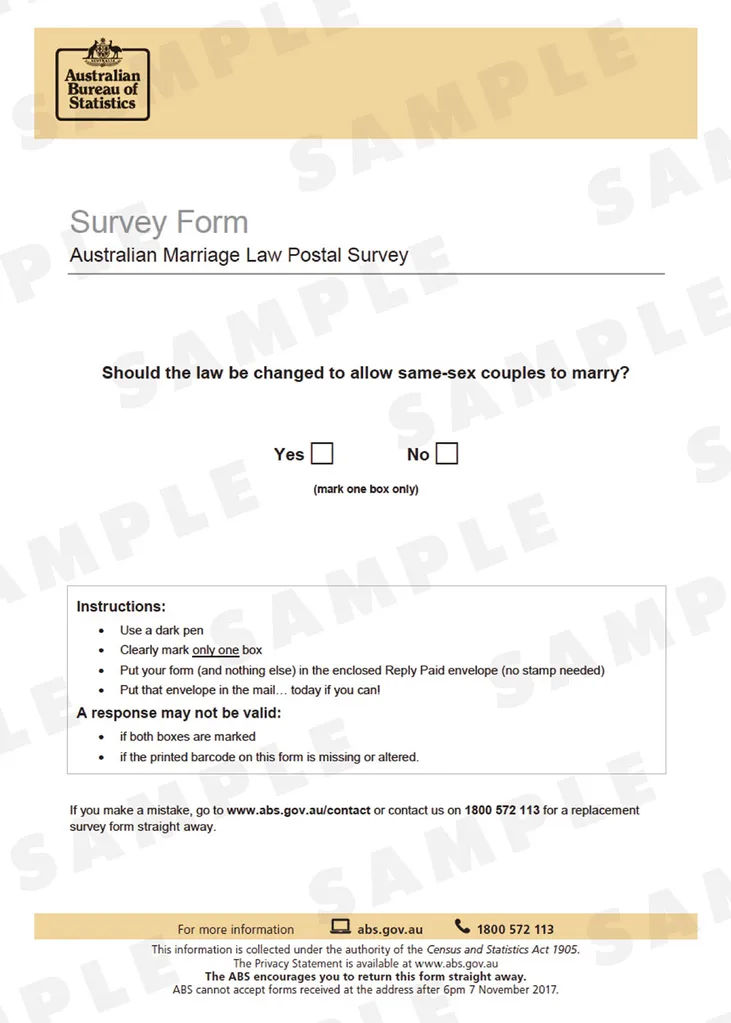
The wording of the postal vote survey jeopradises a ‘Yes’ win because of one simple fact: people do not like change. The phrasing “Should we change the law” suggests Australia is making a big one.
It suggests a departure from the status quo just to accommodate a small group.
Dr. Heidi Grant Halvorson says it’s because we don’t know what we’re up against, “psychologically speaking.”
“People (often unconsciously) believe when you’ve been doing something a particular way for some time, it must be a good way to do things,” she writes.
A November 2010 study shows that people have a substantial preference for things that have been around longer. For example, people tested who were told acupuncture has been in existence for 2,000 years said they trusted it more than those who were told it has existed for 250 years. Another group was given European chocolate to taste. Half of them were told it had been sold in the region for 73 years, and the other that it had been around only 3. Take a guess at which group rated it more highly.
Without realising it people are inclined to believe taking on something new (like changing an existing law) is not good. The word ‘change’ triggers our natural bias towards keeping the status quo.
“Unconscious bias can be overcome”, Halvorson writes, but “only if we realise it’s there.”
When I was first coming to terms with my sexuality the New Zealand Government had already legalised same-sex marriage. So at no point in my life have I ever been made to question whether or not I’ll be able to marry.
Until I went and decided I want to live in Sydney.
And realised how beautiful the women are over this side of the ditch. So beautiful in fact, that I think I’d like them to be included in my marriage options.
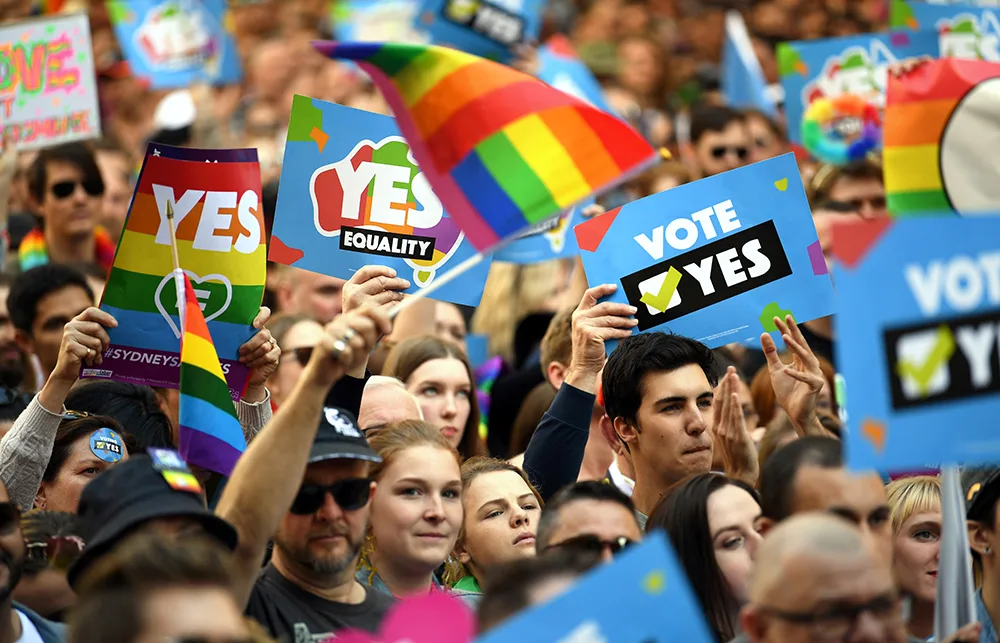
The other night I was in a Newtown bar with a couple of my lesbian friends and something Sydneysider Brooke said to me really hit home. We were talking about how few lesbian couples we know that last. “The law doesn’t take our relationships seriously, so we kind of don’t take ourselves seriously,” she said.
It doesn’t have to stay that way. However, asking people to “change a law” in a postal survey encourages responders to shy away from upsetting the status quo.
Ironically, Australia has already changed their law around gay marriage, and no one kicked up a fuss then – and they certainly weren’t asked to vote on it.
In 2004, two Australian couples, including Jacqui Tomlins and her wife Sarah legally married in Canada and then applied to the courts for validation of their unions here. Because the Australian marriage act at the time didn’t define marriage as being “between a man and a woman,” they were within their legal rights.
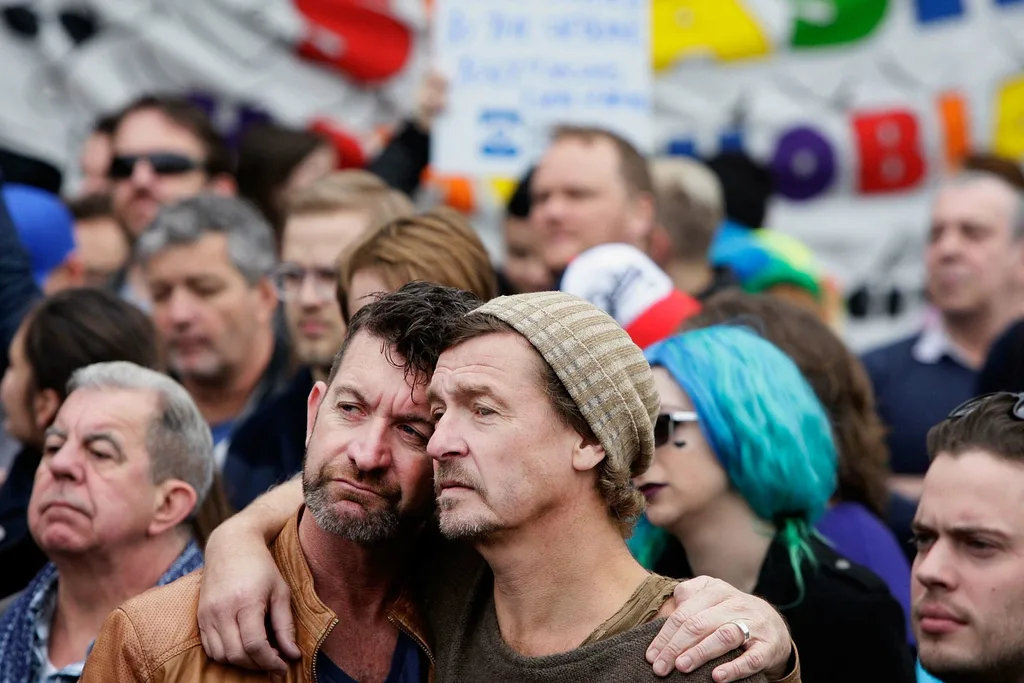
Prime Minister John Howard swiftly retaliated. He amended the law by adding a narrower definition of marriage: “The union of a man and a woman to the exclusion of all others, voluntarily entered into for life.”
Less than an hour after he announced the changes the government rushed legislation enabling them into parliament. No plebiscite. No postal vote. No national debate.
From then, any existing or future gay marriages that took place overseas were invalid in Australia.
Unfair? 70 per cent of Australians now think so and 30, 000 of them marched in Sydney last Sunday to prove it. And now all of us are responsible for making our outrage plain on a piece of paper
With that in mind, my message to all the ‘no’ voters is this: apply some playground logic. Don’t do anything you wouldn’t like done to you.
Try to imagine how it would feel if the Australian government annulled every heterosexual marriage tomorrow and then left the decision of reinstating it up to the LGBT community. It would hurt you, deeply. Just like this hurts us
RELATED: My Family Is Not An “Atrocity”
